7-49 Up
Introduction
On 5th May 1964 (three years before I was born, incidentally), Granada TV broadcast a one-off film called 7 Up as part of their World In Action social commentary series. The idea was to look at British society in the early 1960's and look at how things may have changed by the year 2000. The team did this by featuring a group of 7 year old children from a cross section of British society and interviewing them on their views and aspirations.
Founder editor Tim Hewatt was inspired by the Jesuit saying 'Give me the child until he is seven and I will show you the man', a saying that is repeated during the 7 Up programme. 7 Up turns out to have been an inspired and forward thinking documentary series, which it may not have done, returning to interview the children every 7 years and show them as they grew into young and then middle aged adults.
The series has won a series of awards and accolades, and this boxset brings all 7 instalments together for the first time.
7 Up - the introduction to the series, showing us life and attitudes of 7 year olds from different social strata. There is a marked contrast between the different classes and also in comparing life for seven year olds in 1964 and 2009.
7 Plus 7 - this segment was broadcast on 15th December 1970 and the children have hit their teens.
21 Up - broadcast on 9th May 1977
28 Up - broadcast on 19th, 20th and 21st November 1984
35 Up - broadcast on 22nd May 1991
42 Up - broadcast on 20th July 1998
49 Up - broadcast on 15th and 22nd September 2005
Visual
As this is a TV documentary series that started in 1963 and is still running (latest instalment in 2005), the instalments are a mix of black & white and colour footage. The first instalment 7 Up is the only one to be fully in b&w but clips from this segment appear in all of the others. You also see some real differences in the grade of the colour stock in each of the segments, some real quality differences within the same segment; 28 Up is a prime example of this.
Extras
Michael Apted At Granada - fascinating extra on Apted's early, focussing mainly on the groundbreaking work at Granada before looking at some of his other work. Quite detailed and very interesting.
It Was Only Meant To Be One Film - slightly shorter extra that reveals that this groundbreaking series was actually only supposed to be a one-off until a chance conversation in the Granada canteen came up with the idea of a follow up film, which then became a life-long commitment from Apted.
Overall
7-49 Up is a remarkable set of documentaries. The initial concept was based around a bunch of left-wing TV journalists who wanted to make a programme that showed how the class divide meant that some people were pre-destined for success. The original concept changed quite significantly in development and it was only supposed to be a one off that looked forward to the year 2000, and in a sign of the times asked who would be the successful executive or trade union leader. What the finished programme gave us was a slightly flawed but interesting view of the views of a cross section of England's young population.
The chance to do a follow-up gave Granada the idea of revisiting the same set of children every 7 years and have so far managed to do this, with Apted already planning the next instalment for broadcast in 2012m Olympic year. This longitudinal-type of documentary is a massive commitment on the behalf of Granada and for that they deserve some recognition. With the latest instalment broadcast in 2005, this series has been running for at least 41 years. If Apted pulls off the 56 Up segment then he will have broken 50 years and what's already a massive achievement will be even more impressive.
So what's the attraction of this series? For me, it's about the opportunity to reflect on your own life through watching the lives of others. You look at the various characters that are being interviewed at set points in your life and look back at how you were at the same age, comparing your hopes, aspirations and experiences. You also get the opportunity to consider just exactly what success means. Is it money? This was clearly some of the original thinking behind this series but that doesn't appear to be the motivation for anyone here, despite some of the participants being born into it or some of them wishing to have just a bit more. Success appears to be a mixture of fulfilment and family, with each of the now adults finding it to varying degrees at some point during the series; some earlier than others, some of it temporary and then found again.
It can't be easy having this kind of intrusion on your life every seven years and it shows. A couple have already stopped being involved, whilst others seem to reluctantly take part and at times are quite hostile towards Apted. I take the point raised by Jackie when she mentions that she doesn't agree with some of the editorial decisions made by Apted and that despite the long running participation that none of them have any say of the focus of the film. That's fair but on the other hand Apted has to make some kind of decision on how each segment will go and has to base each participants contribution to make it interesting to the viewer. There were a couple of times when I wasn't overly happy with some of the questions that he asked, but as the film maker I have to trust that was sound reasoning behind that. I also like how Apted allowed both Lynn and John to use the programme for their own interests; Lynn for the library system that has been a part of her life since 21 and John to raise awareness of living standards in Bulgaria. Part of that was surely a concession to get them on board, but it shows the power of TV, something that John especially recognises.
Having been born in 1968 myself, I wasn't even aware of this until the last segment was broadcast and decided at that point not to watch it purely on the basis that I'd missed all the others. The chance to watch it all over a week or so was an opportunity not to be missed; I had high expectations and they were more than matched. Despite reservations from some in the programme, I think that this is a superb historical document that traces the changing lives of people from across the social spectrum and shows ultimately that we're not really that different. There are a few surprises on the way, but everyone here can be proud of their involvement and I really hope that they all consent to involvement in the next one, which I will watch when it's broadcast this time.
I thoroughly enjoyed watching these children grow into middle age and realise that just as Mark Hollis of Talk Talk once sang, life's what you make it.
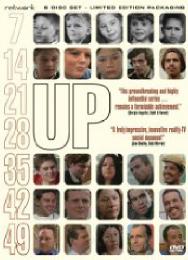
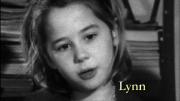

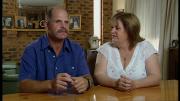
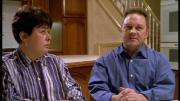

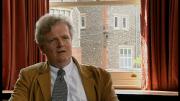

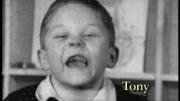






































Your Opinions and Comments
Be the first to post a comment!